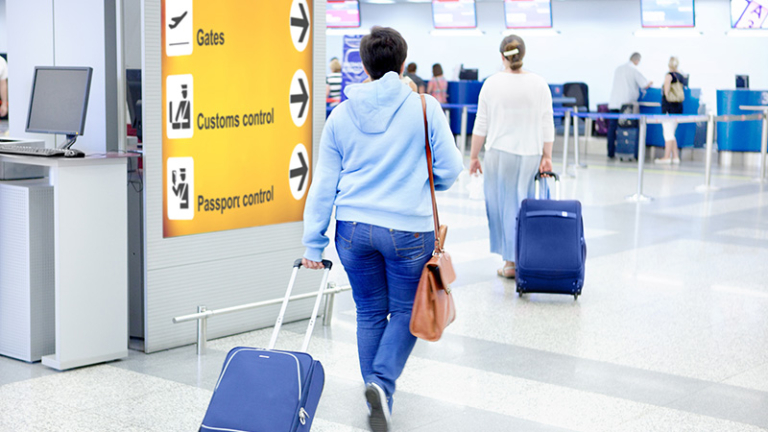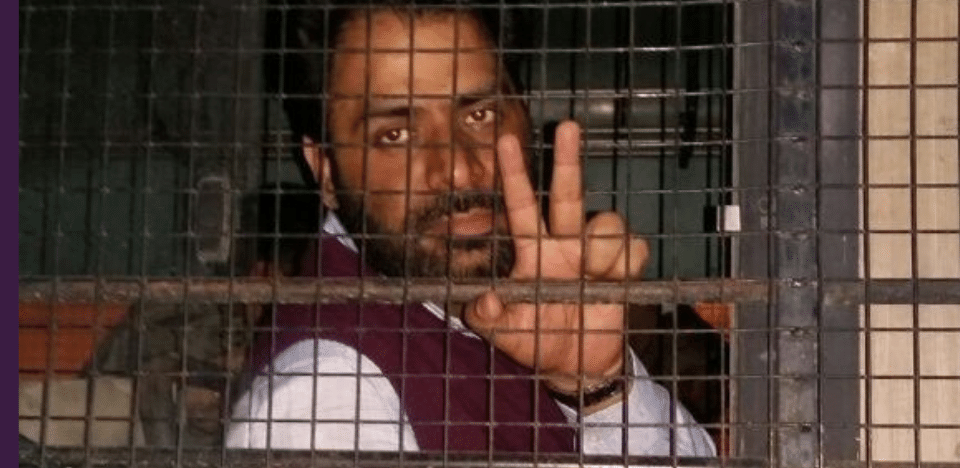
Jonathan Kuttab Releases Memoir
July 4, 2023The United States Visa Waiver Program (VWP) permits, on a reciprocal basis, the entry of citizens of about 40 countries for 90 days for business or tourism without applying for a visa in advance. Israel has sought to be admitted to this program in the past, but has not been eligible for consideration because its US visa refusal rate was higher than the 3 percent required to apply for this program. Other requirements, especially reciprocity, have also delayed Israel’s admission into the program.
In 2022, largely as a result of reduced travel during the corona pandemic, Israel qualified to apply, and has been working hard to obtain admission to this program which would allow its citizens to enter the United States for 90 days without obtaining a visa.
Impediments to Israel’s Entry
One of the biggest obstacles to Israel’s entry has been the widespread knowledge, and frequent complaints regarding its treatment of Palestinian Americans, as well as Arab and Muslim Americans, at its borders and at Ben Gurion Airport in particular, via which most Palestinians are prevented from entering Israel. Its policy of profiling such Americans, subjecting them to often humiliating questioning, strip searches, long waits, and outright denials of entry has been decried by Arab and Palestinian Americans for decades.
When Israel requested inclusion in the VWP this year, Arab American Organizations again protested the move and met with US government officials to raise the issue of reciprocity. They urged them to refuse admission for Israel until it clearly changes its policy and abides by the principle of reciprocity which is an integral condition for entry.
Israel has promised to ease restrictions and has proposed a new mechanism for entry of Arab Americans via Ben Gurion Airport.
In discussions with the State Department, and following political pressure from outgoing US Ambassador to Israel Thomas Nides, Israel has promised to ease restrictions and has proposed a new mechanism for entry of Arab Americans via Ben Gurion Airport. According to media reports, Israel has started a trial period of 30 to 45 days for this new mechanism in an effort to convince the Biden administration to allow it into the VWP. It has even announced that the State Department has agreed to this new mechanism, and will grant Israel entry into the program at the end of June. The State Department has neither confirmed nor denied that such a mechanism has been agreed between Israel and the United States, but said that the matter is still under consideration. On the other hand, 65 Senators have written to the State Department urging that Israel’s application be prioritized and expedited. The fear is that if Israel is not included in the program by September, the process will have to be started again, and the visa refusal figures for the current year will be included, which are expected to show a higher refusal rate than is allowed by the program, or 3 percent. In addition to a lower threshold, the program requires procedures for sharing fingerprints and personal data of all applicants, as well as the provision of reciprocity for US citizens by the foreign country involved.
According to unofficial figures, about 100,000-200,000 Palestinian Americans may be impacted by this policy as well as between 45,000 and 60,000 who live in the occupied West Bank. A smaller number live in the Gaza Strip. The number fluctuates as many Palestinian Americans visit with their families during the summer months, and they complain of unfair treatment, and are subjected to additional restrictions in that they are not allowed to travel to East Jerusalem, or fly out of Ben Gurion Airport without obtaining a special permit. The numbers of Jewish Americans living in West Bank settlements among more than half a million settlers (not including some 200,000 settlers in East Jerusalem) is unknown, but they do not suffer from any of the restrictions placed on Palestinian Americans.
Israel has informed the State department that the new procedure will facilitate the entry of Palestinian and other Americans into Israel and includes a process to be administered by the Coordinating Office for Government Activities in the Territories (COGAT). According to the plan, they can apply for a 3-month tourist visa while American citizens living in the West Bank will be allowed to freely travel out of Ben Gurion Airport.
The proposed mechanism offered by Israel is simply inadequate to meet the reciprocity requirements.
The proposed mechanism offered by Israel is simply inadequate to meet the reciprocity requirements and appears to be an effort to circumvent the intent of the law governing entry visas and to use political pressure to benefit Israel. Indeed, it is contrary to the substance of the US code that authorizes the Secretary of State to designate countries which can benefit from this program.
There obviously is no way of predicting how the process will be implemented by COGAT—considering its poor record vis-à-vis Palestinians—although it may provide some short-term relief for Palestinian Americans. Initially, under the Oslo Agreement, a number of issues of interest to the Palestinians were vested in District Coordinating Offices to be manned jointly by Palestinian and Israeli officials who had authority to issue permits jointly for a wide variety of matters, including travel within the occupied territories. Eventually this permit system was replaced by COGAT offices run exclusively by Israeli officials who have full and sole discretion to issue, deny, or indefinitely postpone decisions on the applications.
This has evolved into a system of control through permits which are frequently used to advance Israeli interests by using that authority to collectively punish or reward Palestinians, summon them for interrogation, or use it to pressure them into collaboration, or into more acceptable political behavior. It also served to enrich middlemen, or collaborators who would obtain the needed permits, for a price. For most Palestinians, therefore, COGAT is a permit system that is part of the matrix of control over their lives and freedom of movement. This situation got even worse with the recent transfer of COGAT control to Finance Minister Bezalel Smotrich, leader of the far-right Religious Zionist Party and Junior Defense Minister—who will monitor the appointment of officers and implementation of occupation policies.
Specific Drawbacks of the Proposed Trial Period
In terms of providing assurances to US officials who need to decide on the visa waiver application, the above-mentioned proposed solution has some major deficiencies:
- A period of one month to 45 days is far too short to determine Israeli behavior, and there are no built-in assurances that the policy observed during this trial period will continue to be followed once Israel is admitted into the Visa Waiver Program. Removing a powerfully connected state like Israel from the VWP once it is admitted is difficult and could prove impossible.
- No criteria have been established to evaluate the program and to determine whether it has been successful in addressing the problem of discrimination against Palestinian Americans.
- The program apparently will only apply to Ben Gurion Airport, and will not be implemented, or monitored at other border crossings such as the Allenby Bridge from Jordan. Many Americans enter the West Bank after visiting relatives or sites in Jordan, and in order to avoid the expense of being flown back to the United States if they are denied entry. No mechanism exists for monitoring the behavior of Israeli authorities at bridge crossings or the denials of entry.
- The system of COGAT permits has traditionally been totally discretionary. No published criteria exist to determine how that discretion is exercised. Furthermore, there is no mechanism for review or appeal of COGAT’s decisions. In theory, the Israeli High Court can review these decisions as administrative by the military government and the Defense Ministry. In the past, however, the Israeli courts have not been known to overturn any such decisions. Where serious challenges have been mounted to the administrative actions of the Israeli military government, the courts have uniformly deferred to the judgement of the Defense Ministry, or to “secret evidence” on which their decisions are supposedly based.
- The trial period of 30 to 45 days does not address the other restrictions on movement of Palestinian and Arab Americans once they do enter the country. By comparison, Israeli visitors entering the United States face no restrictions and can move freely throughout the country. Reciprocity requires that Americans, once they enter Israel, should be equally entitled to free movement. In practice, Palestinian Americans who enter Israel face a variety of obstacles and checkpoints where they are treated in the same way as other Palestinians under occupation, and face checkpoints, restrictions, delays, and denials of movement where their American passports are of little or no help. Those visiting or residing in the occupied territories often report that soldiers take particular glee in dismissing or disrespecting US passports and telling Palestinian Americans that their passports are of no value in Israel.
- Finally, and most importantly, far from proposing a solution, the whole permit system proposed by Israel under COGAT only affirms Israel’s intention to refuse granting genuine reciprocity and its insistence on treating Palestinian and Arab Americans in a separate and discriminatory manner. Even if the system worked smoothly and permits were given easily and generously, the very existence of the system (which only applies to certain Americans just for being Arab, Muslim, or Palestinian Americans) contradicts the principle of reciprocity and nondiscrimination embodied in the slogan “blue is blue” used by Ambassador Nides and State Department officials to describe the principle of reciprocity. It is a reference to the US passport which is blue and carried by US citizens. Basically, it is the US government’s way of saying all US citizens should be treated in accordance with the color of their passport and nothing else.
Israel may choose to conduct itself as an apartheid state, and to systematically discriminate against its citizens or its subject populations, as numerous international and Israeli human rights organizations have stated. The United States may also choose not to directly challenge those practices, but it should not allow without protest Israel’s discrimination against American citizens under any circumstances. To grant Israel exemption from US regulations and to acquiesce to a system of declared discrimination not only makes the United States complicit in that system against its own citizens, but also contradicts both the letter and the spirit of the Visa Waiver Program which requires reciprocity from countries participating in it.
The pogroms recently perpetuated by Israeli settlers against Palestinians in the West Bank, particularly in the village of Turmus Ayya, highlight the dilemma faced by US officials. The village of Turmus Ayya has a large Palestinian American population. A Michigan state legislator was present in the village with his family, and had to go into hiding when the attack took place. US officials were supposedly outraged by the attack, and Secretary of State Antony Blinken reportedly complained about it to the Israelis, yet few are expecting the US government to take serious action to protect its citizens even against such blatant attacks.
This approach does not bode well for those who are expecting serious action by this administration in dealing with the Israeli request to join the Visa Waiver Program. The supposed mechanism that Israel is testing now appears to be a fig leaf to allow it to join the program and benefit from its advantages, without providing the reciprocity mandated by US codes and regulations.
Originally published July 10, 2023, Arab Center Washington DC
Featured image credit: Shutterstock/Novikov Alex






